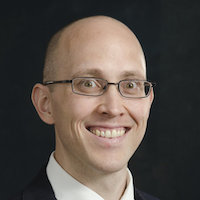
The world's most complex challenges cross all traditional lines of skills and knowledge.
👉 Meet the 2025 Polymath Fellows!
Why Polymath?
Legacy schools aren't moving fast enough to meet your needs.
Polymath will make sure you aren't left behind.

Employers can't find the talent they need
Across every sector, organizations are struggling to fill roles with people who have both the concrete skills and the human capacities – curiosity, creativity, and critical thinking – that complex work demands. This isn’t just a pipeline issue; it’s a systems mismatch, especially as leading employers transition from task-based roles to problem-based roles. The legacy education model isn’t equipping candidates with the range or integration of knowledge required. Polymath works with employer partners to develop employees who are uniquely prepared to solve problems in your organization by giving them a say in the curriculum.
Our "ROTC for the private sector" model increases skill match for each new hire and increases retention. Every employee commits to 2 years of full time employment after a 2 year, employer-supported, part time apprenticeship concurrent to school.
Students are priced out of opportunity
Far too many curious, driven students are being locked out of higher education by escalating costs and a system that ties opportunity to family income. Tuition has moved faster than wages for 20 years, and the burden of debt is crushing – delaying life’s milestones and forcing too many to walk away from dreams before they begin. We’re not facing a shortage of talent; we’re facing a lack of access. Education is supposed to be the engine of opportunity, not a toll booth on the road to a better future.


Lifelong learning is required today
The reality for today’s professionals is that the world refuses to stand still. Technology accelerates change, industries reorganize overnight, and the toolkit for solving hard problems keeps expanding. To maximize impact and remain prepared for what’s next, professionals must consistently engage in lifelong learning – not as a luxury, but as a necessity. Curiosity, creativity, and continuous skill-building are now central to leading, collaborating, and driving impact in an increasingly complex landscape.
Polymath's courses, designed to develop individuals for problem-based roles, will help you integrate your experiences in ways that no other program can offer.
THe Foundational Science
Our approach to education is informed by two decades of science that shows the value of polymaths for innovative organizations and complex problems.
What We Do
Four ways to learn
From our Polymath Fellowship to an upcoming master's degree, we are building programs that serve learners and employers alike.

Polymath Fellowship (2025)
Ideal candidate: someone who has a complex challenge that they are passionate about, and who has a clear idea of how they would use the $2,000 grant to advance their work.
Learn more.

Non-Degree Courses (2026)

Master's Degree (2026)
Ideal candidate: a professional 5-15 years into their career who is making a career pivot.

Bachelor's Degree (2028)
Students study 3 non-adjacent majors, like healthcare administration or cybersecurity, economics, and philosophy, because narrowing your skills no longer works in a complex, technology-empowered world.
In years 2 and 3 of a year-round academic year, students will serve as apprentices with employer partners while taking courses to earn an income and apply learning in real time.
Ideal candidate: a young adult who wants to be academically challenged in a 3-year “earn while you learn” model of college.
Mentorship
World-class mentors support Polymath Fellows






















